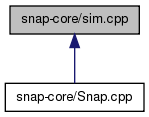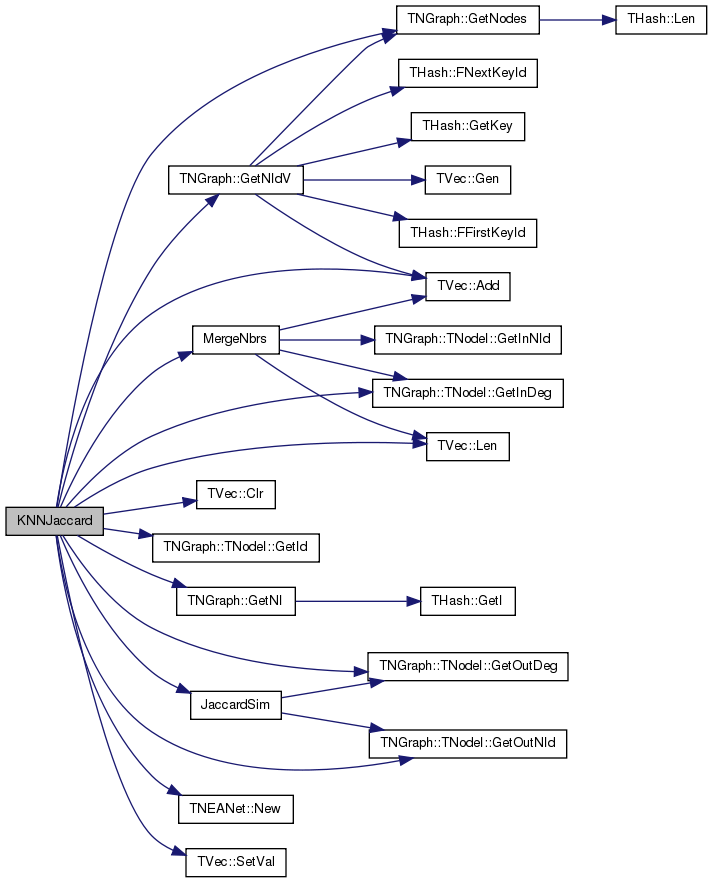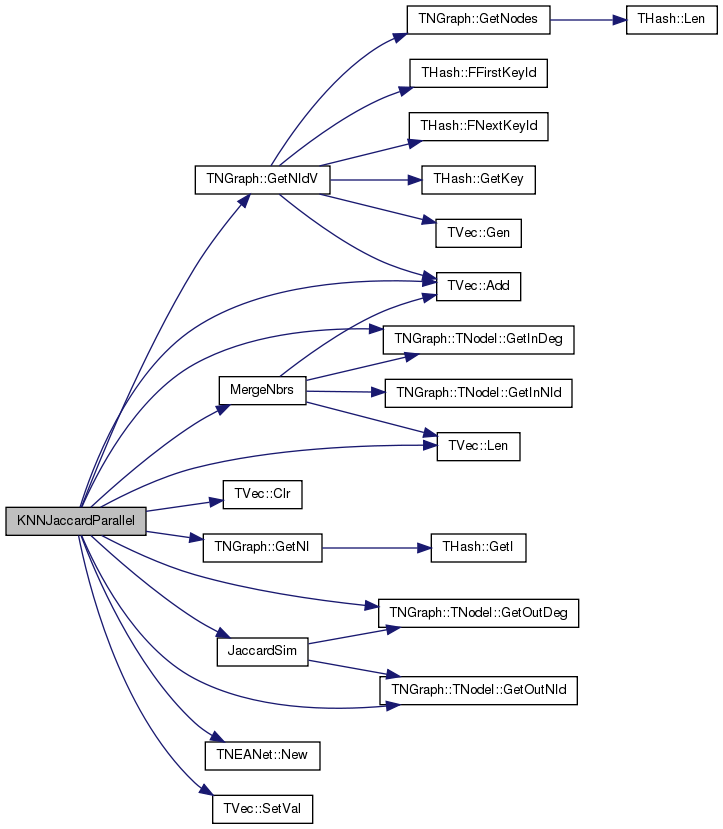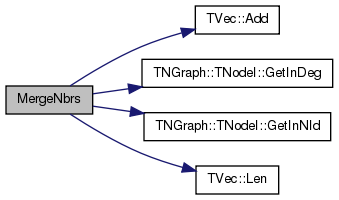|
SNAP Library 4.0, Developer Reference
2017-07-27 13:18:06
SNAP, a general purpose, high performance system for analysis and manipulation of large networks
|
|
SNAP Library 4.0, Developer Reference
2017-07-27 13:18:06
SNAP, a general purpose, high performance system for analysis and manipulation of large networks
|

Go to the source code of this file.
Functions | |
| float | JaccardSim (TNGraph::TNodeI NI1, TNGraph::TNodeI NI2) |
| void | MergeNbrs (TIntV *NeighbourV, TIntV *list1, TNGraph::TNodeI NI2) |
| PNGraph | GetBiGraph (PTable P, int index_col_1, int index_col_2) |
| PNEANet | KNNJaccardParallel (PNGraph Graph, int K) |
| PNEANet | KNNJaccard (PNGraph Graph, int K) |
| float JaccardSim | ( | TNGraph::TNodeI | NI1, |
| TNGraph::TNodeI | NI2 | ||
| ) |
Definition at line 2 of file sim.cpp.
References TNGraph::TNodeI::GetOutDeg(), and TNGraph::TNodeI::GetOutNId().
Referenced by KNNJaccard(), and KNNJaccardParallel().


Definition at line 183 of file sim.cpp.
References TVec< TVal, TSizeTy >::Add(), TVec< TVal, TSizeTy >::Clr(), TNGraph::TNodeI::GetId(), TNGraph::TNodeI::GetInDeg(), TNGraph::GetNI(), TNGraph::GetNIdV(), TNGraph::GetNodes(), TNGraph::TNodeI::GetOutDeg(), TNGraph::TNodeI::GetOutNId(), JaccardSim(), TVec< TVal, TSizeTy >::Len(), MergeNbrs(), TNEANet::New(), and TVec< TVal, TSizeTy >::SetVal().

Definition at line 80 of file sim.cpp.
References TVec< TVal, TSizeTy >::Add(), TVec< TVal, TSizeTy >::Clr(), TNGraph::TNodeI::GetInDeg(), TNGraph::GetNI(), TNGraph::GetNIdV(), TNGraph::TNodeI::GetOutDeg(), TNGraph::TNodeI::GetOutNId(), JaccardSim(), TVec< TVal, TSizeTy >::Len(), MergeNbrs(), TNEANet::New(), and TVec< TVal, TSizeTy >::SetVal().

| void MergeNbrs | ( | TIntV * | NeighbourV, |
| TIntV * | list1, | ||
| TNGraph::TNodeI | NI2 | ||
| ) |
Definition at line 21 of file sim.cpp.
References TVec< TVal, TSizeTy >::Add(), TNGraph::TNodeI::GetInDeg(), TNGraph::TNodeI::GetInNId(), and TVec< TVal, TSizeTy >::Len().
Referenced by KNNJaccard(), and KNNJaccardParallel().

